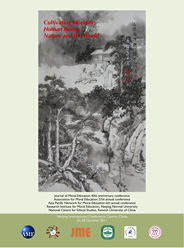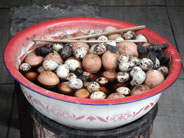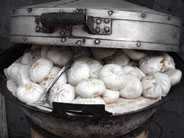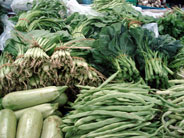Subsistence Support for Participation in Nanjing 2011 Conference
kindly offered by the
Journal of Moral Education Trust
The Journal of Moral Education Trust will award some subsistence support to a limited number of scholars from the countries listed below as having emerging or developing economies (to adopt the April, 2010 IMF classification) and whose financial circumstances do not enable them to stay in the conference hotel, the Nanjing International Conference Hotel. While it will also reduce the overall cost of attending the conference, this support is primarily intended to help such scholars gain greater benefit from the event by having the opportunity to remain in the conference hotel all day and to interact with other delegates during meal times. It is anticipated that the supported delegates, coming from regions of the world that might otherwise be under-represented, will, in turn, enrich the conference through their presence and participation.
The subsistence support will be administered by the Research Institute for Moral Education Nanjing Normal University, in conjunction with the International Conference Organising Committee. It will be in the form of tickets for lunch and dinner, starting from dinner on Monday, 24 October and ending with lunch on Friday, 28 October, including the banquet on the evening of Thursday, 27 October. With a value of at least 835 yuan (RMB) (about US$125), the tickets will be distributed to successful applicants on registration at the conference hotel.
To be eligible for consideration for subsistence support applicants, who should not yet have attained full professorial status, are required to submit, in English:
1. Full name and contact details including institutional mailing address, phone number and email address.
2. The title of the applicant's proposed conference presentation(s) and date(s) of submission.
3. A covering letter of no more than one page summarising the applicant's reasons for wishing to attend the conference and the importance of the subsistence support in making this possible and confirming that he/she will not be staying in the conference hotel due to financial constraints. Unless specifically mentioned in the application it will be assumed that the applicant will be participating in the conference for its duration (from Monday 24, October, afternoon to Friday, 28 October, afternoon) and wishes to have tickets for all meals as stated above.
4. A CV of no more than one page including degrees obtained, current academic affiliation and recent publications (if any).
5. A letter of support from an academic supervisor, colleague or employer indicating that the applicant's proposed participation in the conference has been approved.
Notes:
- Applications should be submitted in one Word document (or one Word document with a separate pdf of the letter of support) with their name in the file name, following the format:
'SurnameGivenNameSubsistenceApplication'
(for example: LeeJohnSubsistenceApplication.doc).
- In exceptional circumstances, which should be explained in the covering letter, consideration will be given to a deserving application from a scholar who has attained full professorial status.
Applications should be sent by email to the Subsistence Committee Chair, Chris DRAKE, by 19 July 2011. The Committee will request further information, if necessary, with a view to deciding on applications, in its absolute discretion, by 21 July 2011. Applications that do not meet the above requirements and/or that are from applicants who have not submitted a proposed presentation are liable to be rejected outright. The Committee's decision will be final.
Emerging and Developing Economies |
||
Afghanistan, Islamic Republic of |
Gambia, The |
Oman |
Source: http://www.imf.org/external/pubs/ft/weo/2010/01/weodata/groups.htm#oem








